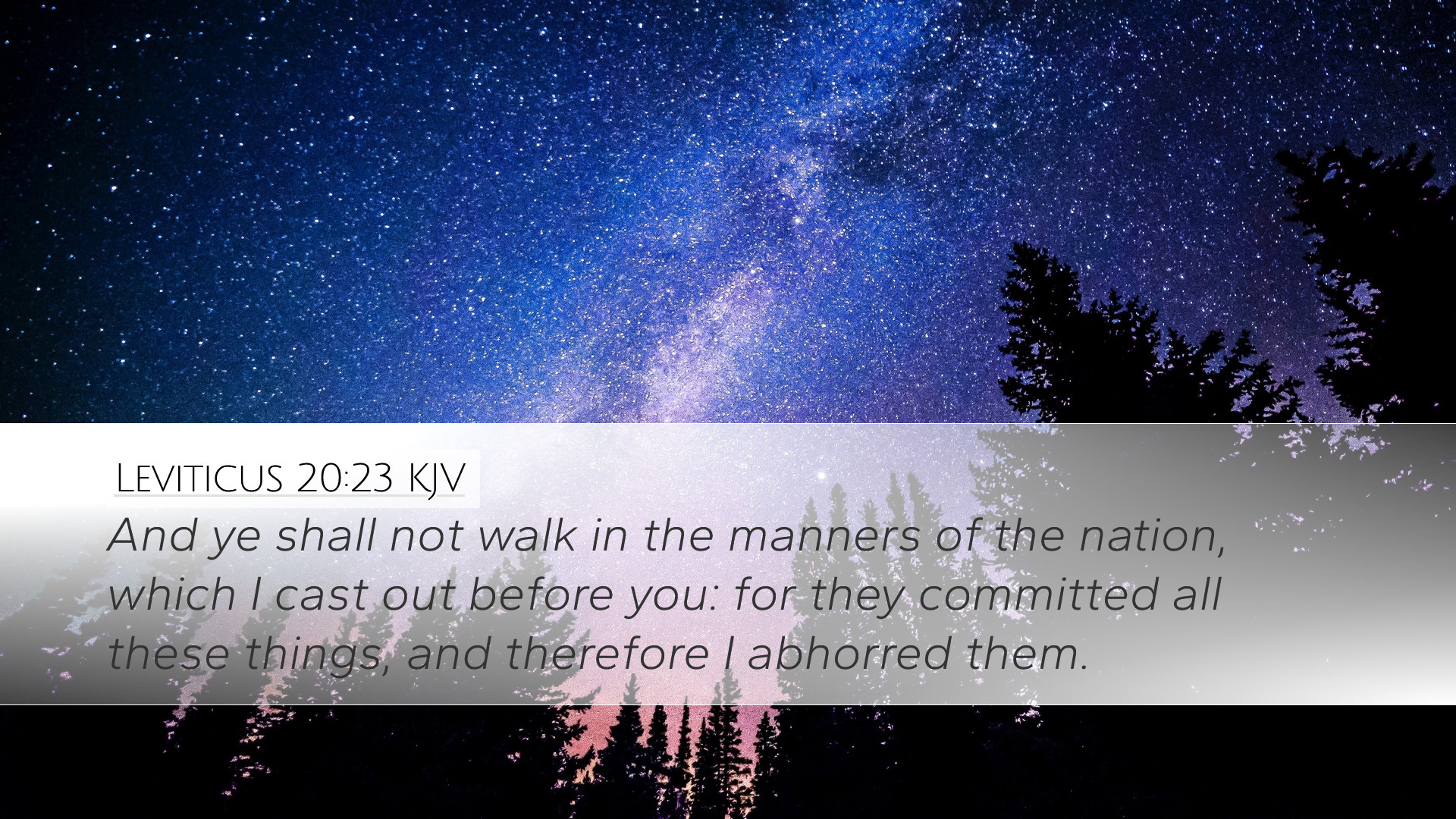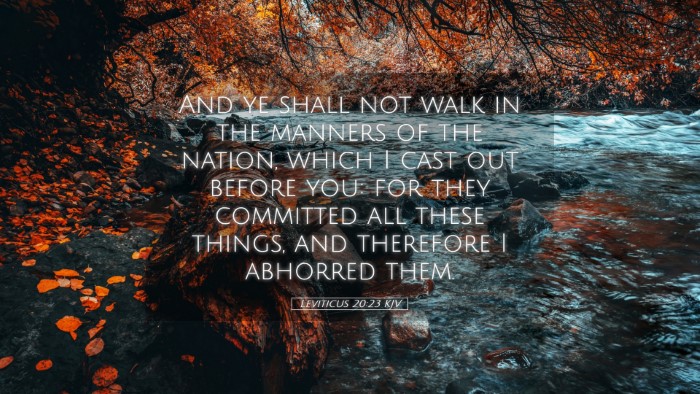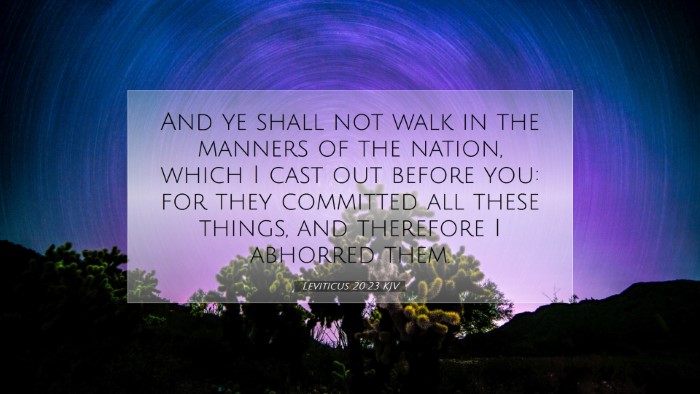Commentary on Leviticus 20:23
Verse Context: Leviticus 20:23 states, "And you shall not walk in the customs of the nation that I am casting out before you, for they did all these things, and therefore I detested them." This verse occurs within the larger framework of Leviticus, which emphasizes holiness and separation from surrounding cultures.
Overall Themes
This passage highlights the critical issue of maintaining distinctiveness as a community of faith and the significance of adhering to divine commands over the customs of surrounding nations. The Israelites are warned against assimilating with the practices of the Canaanites, which are profoundly displeasing to God.
Matthew Henry's Insights
Matthew Henry emphasizes the spiritual danger of enculturation, noting that the Israelites must not only obey God but also understand the deeper implications of the practices they are to avoid. He remarks:
- Dangers of Imitation: Henry warns that the practices of the nations can lead to spiritual compromise, hindering the relationship between God and His people.
- Divine Detestation: The text reveals God's strong feelings against the nations' customs, calling for an awareness among the Israelites regarding God's standards.
Albert Barnes' Perspective
Albert Barnes contributes to the understanding of this passage by stressing the rationale behind God’s command to avoid the practices of local nations:
- Understanding Customs: Barnes elaborates on how these 'customs' represent broader moral and ethical issues. The Israelites are urged to reflect on their identity as God's chosen people.
- Separation as a Moral Imperative: He reinforces the necessity of separation not only as a physical act but as a spiritual safeguard against moral decay.
Adam Clarke's Analysis
Adam Clarke focuses on the historical context of the Canaanite practices that are being rejected:
- Pagan Rituals: Clarke details some of the abominable practices prominent among the Canaanites, such as child sacrifice and various forms of idolatry, which God detests.
- Covenantal Relationship: He underscores that God’s commands stem from a desire for a committed relationship with His people, who are to reflect His holiness in their lives.
Theological Implications
This verse forces contemporary readers to consider what "customs" they might be adopting from wider culture that conflict with their faith. The call for holiness remains relevant, prompting self-examination regarding how cultural assimilation can influence belief and practice today.
Holiness and Distinction
The repeated themes of holiness in Leviticus serve as a reminder that God's people are to embody His character in a world filled with diverse and conflicting values:
- The Call to Holiness: Believers are still called to be a holy people, distinct in moral actions and communal values.
- Community Identity: The significance of community identity, emphasizing the importance of collective adherence to God's will.
Practical Application for Today
In our contemporary context, Leviticus 20:23 calls for a critical reflection on what influences a believer's life:
- Discernment: Pastors and theological students are encouraged to cultivate discernment between wholesome practices and those contrary to God’s nature.
- Transformative Witness: The challenge remains to be a transformative witness to the surrounding culture while maintaining fidelity to God's word.
- Community Standards: Leadership in the church must establish standards based on scriptural truths rather than cultural trends.
Conclusion
Leviticus 20:23 serves as a crucial reminder of the consequences of cultural adaptation that leads to spiritual compromise. The teachings of Henry, Barnes, and Clarke resonate through the ages, urging a returning to a community standing apart for God. This call is not merely historical but contemporary, challenging believers today to live distinctly in holiness as a reflection of God’s character amidst prevailing customs.


